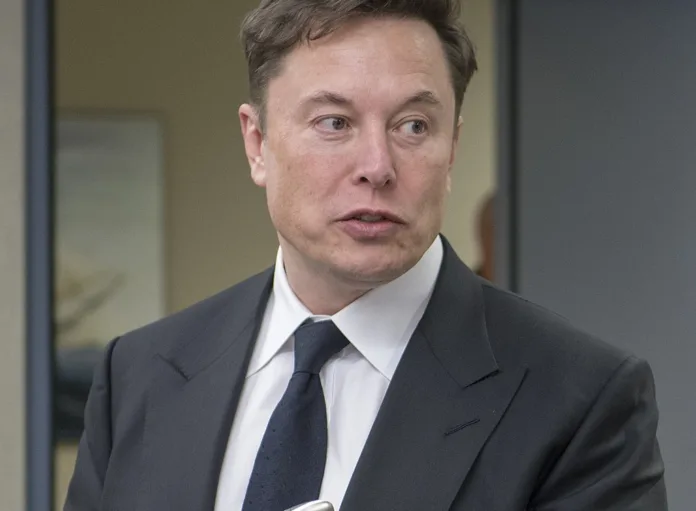Speaking at Vivatech 2024, musk envisions a society where AI provides all goods and services, raising questions about human fulfilment
Elon Musk claims artificial intelligence will eventually take all jobs, a prospect he doesn’t see as entirely negative. Speaking remotely via webcam at VivaTech 2024 in Paris, Musk depicted a future where employment becomes optional. “Probably none of us will have a job,” Musk stated during his keynote speech on Thursday.
Musk described a world where jobs transform into hobbies. “If you want to do a job that’s kinda like a hobby, you can do a job,” he elaborated. “But otherwise, AI and the robots will provide any goods and services that you want.” For this vision to materialize, Musk emphasized the necessity of a “universal high income,” distinct from universal basic income (UBI). He did not specify what this universal high income might entail.
Embed from Getty ImagesThis radical shift, according to Musk, would result in an abundance of goods and services. However, concerns about the rapid advancement of AI continue to grow. Regulators, companies, and consumers grapple with the responsible use of the technology. AI capabilities have accelerated in recent years, transforming industries and raising alarms about job displacement.
Researchers at MIT’s Computer Science and Artificial Intelligence Lab reported in January that AI adoption in workplaces is slower than anticipated. They found that many jobs previously deemed vulnerable to AI automation were not economically viable for employers to automate. Experts believe jobs requiring high emotional intelligence and human interaction, like those of mental health professionals, creatives, and teachers, will remain largely irreplaceable.
Musk, a vocal critic of unchecked AI development, reiterated his concerns during his keynote. He labelled AI as his “biggest fear,” referencing the “Culture Book Series” by Ian Banks, a utopian portrayal of a society governed by advanced technology, as a plausible vision of the future.
Despite the conveniences offered by a job-free society, Musk questioned whether people would find emotional fulfilment. “The question will really be one of meaning – if the computer and robots can do everything better than you, does your life have meaning?” he pondered. Musk suggested that humans might still play a crucial role in giving AI its purpose.
Musk also urged parents to limit their children’s social media exposure. He warned that children are being “programmed by a dopamine-maximizing AI,” highlighting the potential psychological impacts of AI on younger generations.
Analysis:
Elon Musk’s prediction that AI will take all jobs sparks significant debate. This statement invites analysis from multiple perspectives, examining the economic, sociological, and psychological implications.
Economically, Musk’s vision of a world where AI handles all labor tasks challenges the traditional employment paradigm. The concept of a “universal high income” raises questions about how societies will fund such an initiative. Unlike UBI, which offers a basic income to all, Musk’s idea suggests a more generous financial support system. This could potentially reduce income inequality, yet it also demands robust economic planning and resource allocation.
From a sociological viewpoint, the eradication of traditional employment might lead to shifts in societal structures. Work has long been a cornerstone of identity and social interaction. A world where jobs are optional could redefine social norms and values. Musk’s suggestion that people might engage in work as a hobby highlights a potential shift toward a more leisure-oriented society. However, it also raises concerns about social stratification and the distribution of non-labour roles.
Psychologically, Musk’s forecast touches on the human need for purpose and fulfilment. With AI performing most tasks, individuals may struggle to find meaning in their lives. Musk’s question about whether life retains its meaning if robots can outperform humans in all areas highlights a profound existential dilemma. This could lead to increased mental health challenges as people search for new ways to derive satisfaction and purpose.
Additionally, Musk’s warning about children’s exposure to social media underscores the psychological risks associated with AI. The idea of AI-driven platforms maximizing dopamine responses in children points to potential long-term effects on attention spans, self-esteem, and social skills. This cautionary note aligns with broader concerns about the ethical use of AI in media and entertainment.
In conclusion, Musk’s vision of a job-free future driven by AI presents a transformative scenario with far-reaching implications. Economically, it challenges current funding models and labour markets. Sociologically, it redefines work and social structures. Psychologically, it poses questions about human purpose and fulfilment. As AI continues to evolve, society must navigate these complex issues to ensure a balanced and ethical integration of technology.
